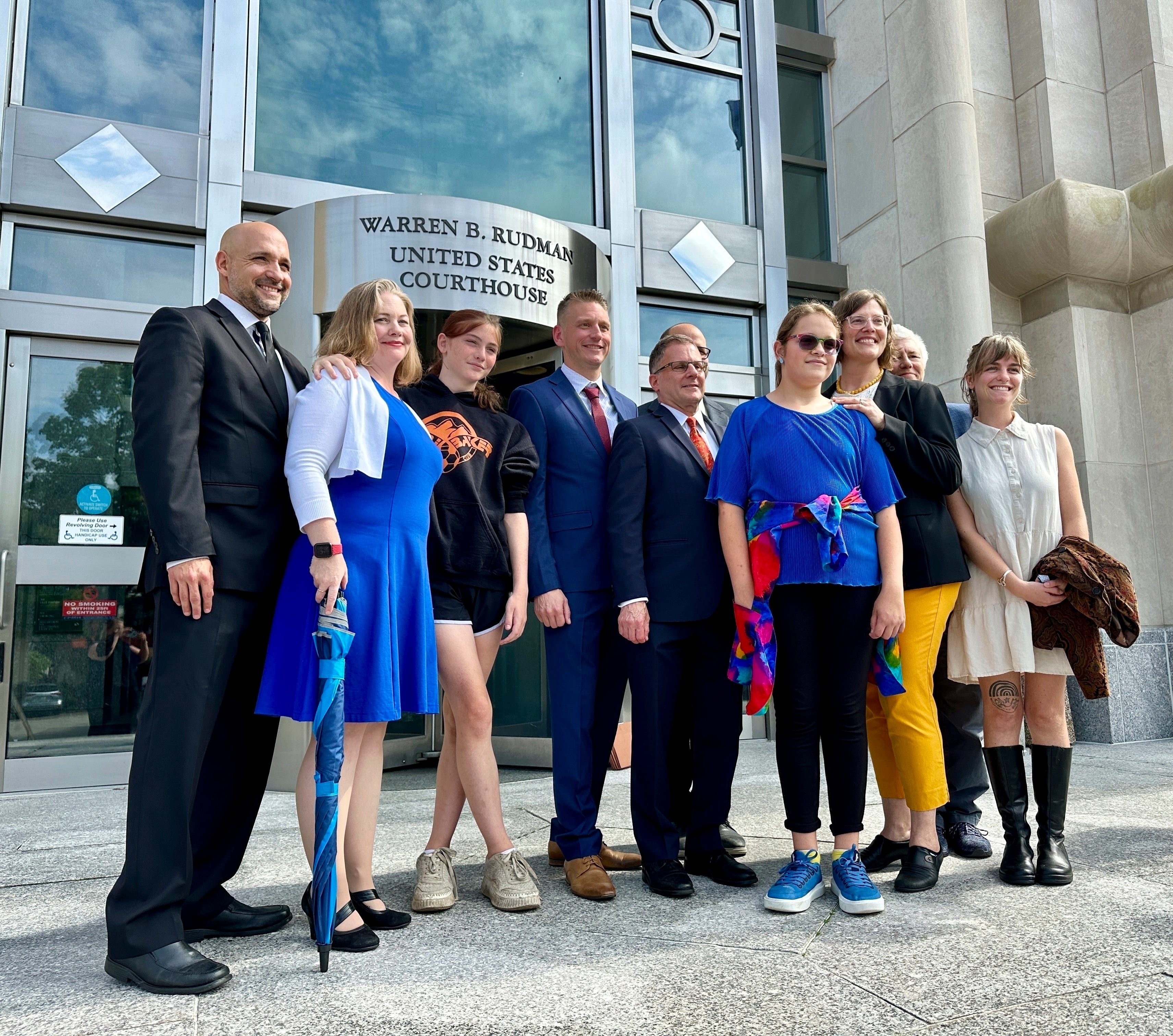NH court to hear cases about transgender girls playing girls sports and the right to protest them
Two lawsuits about transgender girl athletes — one challenging a state ban at schools and the other on the right to protest their participation on girls teams — face federal court hearings in New Hampshire

Your support helps us to tell the story
From reproductive rights to climate change to Big Tech, The Independent is on the ground when the story is developing. Whether it's investigating the financials of Elon Musk's pro-Trump PAC or producing our latest documentary, 'The A Word', which shines a light on the American women fighting for reproductive rights, we know how important it is to parse out the facts from the messaging.
At such a critical moment in US history, we need reporters on the ground. Your donation allows us to keep sending journalists to speak to both sides of the story.
The Independent is trusted by Americans across the entire political spectrum. And unlike many other quality news outlets, we choose not to lock Americans out of our reporting and analysis with paywalls. We believe quality journalism should be available to everyone, paid for by those who can afford it.
Your support makes all the difference.Two lawsuits about transgender girl athletes — one challenging a state ban at schools and the other on the right to protest their participation on girls teams — face federal court hearings in New Hampshire on Thursday.
The first case is about two transgender teen girls, one who played soccer on the girls team this fall and the other who plans on participating on the track team this winter.
A federal judge ruled earlier this year that the teens can try out for and play on girls school sports teams as they seek to overturn the Fairness in Women’s Sports Act on behalf of all transgender students in New Hampshire.
The law, signed by Gov. Chris Sununu in July, bans transgender athletes in grades 5 to 12 from teams that align with their gender identity. It requires schools to designate all teams as either girls, boys or coed, with eligibility determined based on students’ birth certificates “or other evidence.”
Sununu had said it “ensures fairness and safety in women’s sports by maintaining integrity and competitive balance in athletic competitions.” About half of states have adopted similar measures.
In the second case Thursday, a judge is expected to hear from school district officials in Bow defending their decision to bar parents from wearing pink wristbands with “XX” — representing the female chromosomes — at a girls high school soccer game in September. The parents sued the district in September.
Parker Tirrell, one of the transgender girls challenging the state ban on participation, was playing on the opposing team that day.
The district issued no-trespass orders banning two parents from school grounds because they wore the wristbands. Those orders have since expired.
The judge also is expected to hear from the parents, who say their First Amendment rights were violated. They have requested a court order against the school district.
“Although the fall soccer season has ended, plaintiffs intend to continue wearing their wristbands at other school extracurricular events — such as swim meets and cross country meets — during this school year and in future school years,” the parents said in a court document.
School district officials said they acted appropriately.
The district “properly exercised its duty to protect Parker Tirrell from intimidation and harassment during the game," it said in a court document.
It also said it issued reasonable sanctions” against the two parents “for conduct they knew violated the school's policies governing athletic events.”